Breaking
- MENU
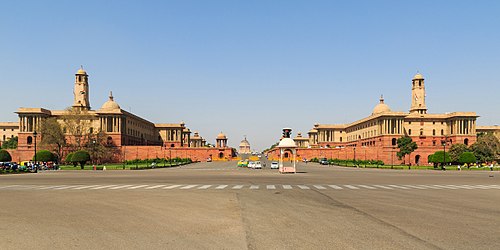
BILATERAL ISSUES
IRAN
Raksha Mantri Shri Rajnath Singh holds meeting with Iran's Minister of Defence in Tehran, New Delhi, 6 September 2020.
Raksha Mantri Shri Rajnath Singh held a bilateral meeting on 5th September 2020 with Iran's Minister of Defence and Armed Forces Logistics, Brigadier General Amir Hatami, at the latter’s request. Raksha Mantri was on a transit halt in Tehran enroute from Moscow to New Delhi.
The meeting between the two Ministers took place in a cordial and warm atmosphere. Both the leaders emphasized upon the age-old cultural, linguistic and civilizational ties between India and Iran. They discussed ways to take forward bilateral cooperation and exchanged views on regional security issues, including peace and stability in Afghanistan. Source: Press Information Bureau (PIB).
Unstarred Question No.517, Iran-China Deal, Lok Sabha, 16 September 2020.
517. SHRI VINAYAK RAUT:
SHRI BALASHOWRY VALLABHANENI:
Will the Minister of External Affairs be pleased to state:
(a) the manner in which India look at the trade and military deal between Iran and China;
(b) whether the Ministry has assessed the impact of Chinese involvement in the Middle East on India;
(c) if so, the details thereof; and
(d) the impact of this move on India-Iran trade and other relations?
ANSWER
THE MINISTER OF STATE IN THE MINISTRY OF EXTERNAL AFFAIRS
[SHRI V. MURALEEDHARAN]
(a) to (d) India and Iran have historical ties and close civilizational links. Our relations with Iran stand on their own footing and are independent of its relations with third countries.
India accords highest priority to our relations with countries in the West Asia and has extensive ties in the fields of culture, education, trade and investments. Source: Ministry of External Affairs (MEA).
Unstarred Question No.1783, Chabahar-Zahedan Rail Project, Lok Sabha, 21 September 2020.
1783. SHRIMATI PRENEET KAUR:
Will the Minister of External Affairs be pleased to state:
(a) whether India has lost the Chabahar-Zahedan Rail Project, and if so, the details thereof;
(b) the status-quo of the MoU signed between IRCON (Ircon International Limited) and CDTIC (Construction and Development of Transportation Infrastructures Company) as of present day; and
(c) whether IRCON is disengaged from its obligations of developing the Chabahar-Zahedan Rail Project and if so, the details thereof?
ANSWER
THE MINISTER OF STATE IN THE MINISTRY OF EXTERNAL AFFAIRS
[SHRI V. MURALEEDHARAN]
(a) to (c) During the visit of the Prime Minister to Iran in May 2016, a MoU was signed between Indian Railways’ IRCON and Iranian Railways’ CDTIC (Construction & Development of Transportation Infrastructures Company) for construction of the Chabahar-Zahedan Railway Project. The two sides remain engaged on this matter.
India and Iran continue to cooperate on developmental projects in Iran, including the Chabahar-Zahedan railway line. Source: Ministry of External Affairs (MEA).
Unstarred Question No.1675, Chabahar Port, Lok Sabha, 21 September 2020.
1675. SHRI DEEPAK BAIJ:
Will the Minister of External Affairs be pleased to state:
(a) whether the Government had signed an MoU with the Government of Iran for the construction of Chabahar Port;
(b) if so, the details thereof;
(c) whether the Government remained inactive with regard to this project as a result of which Iran is completing the same on its own and if so, the details thereof;
(d) whether such an attitude is continuously proving detrimental to the relationship being shared by India with its friendly countries; and
(e) if so, the details thereof?
ANSWER
THE MINISTER OF STATE IN THE MINISTRY OF EXTERNAL AFFAIRS
[SHRI V. MURALEEDHARAN]
(a) & (b) During the visit of the Prime Minister to Iran in May 2016, a Trilateral Agreement to establish the International Transport and Transit Corridor was signed by India, Iran and Afghanistan. India is participating in the development of the first phase of the Shahid Behesti Port in Chabahar in cooperation with the Government of the Islamic Republic of Iran.
(c) to (e) The Indian company, India Ports Global Limited, has taken over port operations in December 2018 and has since handled 12 lakhs tons of bulk cargo and about 8200 containers. In the recent past, there has been a rise in transit cargo for Afghanistan through Chabahar. India’s assistance of 75,000 tons of wheat to Afghanistan, of which eight consignments have already been shipped, is being supplied via Chabahar. The port has handled over 53,000 tons of India’s wheat bound for Afghanistan since the beginning of the current fiscal year. Afghan exports to India are also routed via Chabahar Port. Source: Ministry of External Affairs (MEA).
Unstarred Question No.1362, MoU with Iran on Chabahar Port, Rajya Sabha, 22 September 2020.
1362. SHRI VISHAMBHAR PRASAD NISHAD:
CH. SUKHRAM SINGH YADAV:
SMT. CHHAYA VERMA:
Will the Minister of EXTERNAL AFFAIRS be pleased to state:
(a) whether the MoU had been signed by Government with Iran for the construction of Chabahar Port, the details thereof;
(b) whether it is a fact that Iran itself is completing this project due to the inactiveness of Government of India; and
(c) whether due to such steps India’s relationship with friendly countries is steadily deteriorating?
ANSWER
THE MINISTER OF STATE IN THE MINISTRY OF EXTERNAL AFFAIRS
[SHRI V. MURALEEDHARAN]
(a) to (c) During the visit of the Prime Minister to Iran in May 2016, a Trilateral Agreement to establish International Transport and Transit Corridor was signed by India, Iran and Afghanistan. India is participating in the development of the first phase of the Shahid Behesti Port in Chabahar in cooperation with the Government of the Islamic Republic of Iran.
An Indian company, India Ports Global Limited, has taken over port operations of Shahid Behesti Port in Chabahar in December 2018 and has since handled 12 lakhs tons of bulk cargo and about 8200 containers. In the recent past, there has been a rise in transit cargo for Afghanistan through Chabahar. India’s assistance of 75,000 tons of wheat to Afghanistan, of which eight consignments have already been shipped, is being supplied via Chabahar. The port has handled over 53,000 tons of India’s wheat bound for Afghanistan since the beginning of the current fiscal year. Afghanistan’s exports to India are also routed via Chabahar Port. Source: Ministry of External Affairs (MEA).
KUWAIT
Ambassador of India to the State of Kuwait, Mr. Sibi George, presented his credentials to His Highness Sheikh Nawaf Al-Ahmad Al-Jaber Al-Sabah, Deputy Amir and Crown Prince of the State of Kuwait at Bayan Palace, Kuwait, 08 September 2020.
His Highness warmly welcomed Ambassador and wished him every success in his high responsibilities as India's Ambassador to the State of Kuwait. His Highness also highlighted the historic and friendly relations between the two countries, especially the strong civilizational linkages and the people-to-people contacts.
Ambassador conveyed warm greetings from Hon’ble President and Hon’ble Prime Minister of India to His Highness Sheikh Sabah Al-Ahmad Al-Jaber Al-Sabah, Amir of the State of Kuwait and His Highness Sheikh Nawaf Al-Ahmad Al-Jaber Al-Sabah, Deputy Amir and Crown Prince of the State of Kuwait. Ambassador also thanked His Highness for hosting the Indian Community in Kuwait. Ambassador assured His Highness of his commitment to expand and strengthen the already close, multifaceted bilateral relationship in all spheres including economic relations and trade ties, defence and security, energy, science and technology and global issues, among others.
Before presenting the credentials, Ambassador was received with a Guard of Honor. Source: Embassy of India, Kuwait.
Ambassador paid a courtesy call-on His Excellency Mr. Khalid Sulaiman Al-Jarallah, Hon’ble Deputy Foreign Minister of State of Kuwait, Kuwait,10 September 2020.
Hon’ble Deputy Foreign Minister received Ambassador warmly and assured him full support for a successful tenure in Kuwait. Ambassador thanked him for the warm welcome he received in Kuwait. He also thanked Hon’ble Deputy Foreign Minister for hosting the large Indian community in Kuwait. Discussions included the current state of bilateral relations and ways of strengthening the relationship in various fields including trade, investments, energy, science & technology; and other issues of mutual interest.
Ambassador also raised the matters regarding Indian engineers in Kuwait and of the Indian nationals in Kuwait who could not return to India availing the Amnesty announced by the Government of State of Kuwait in April 2020. Source: Embassy of India, Kuwait.
Unstarred Question No.1365, Expat Quota Bill by Kuwait, Rajya Sabha, 22 September 2020.
1365. SHRI PRABHAKAR REDDY VEMIREDDY:
Will the Minister of EXTERNAL AFFAIRS be pleased to state:
(a) whether the Ministry is aware of the proposed Expat Quota Bill by Kuwait;
(b) whether it is a fact that as many as 8 lakh Indians are going to be affected with this Bill;
(c) whether any consultations at the diplomatic and political level have taken place in this regard; and
(d) if so, the outcome of the same?
ANSWER
THE MINISTER OF STATE IN THE MINISTRY OF EXTERNAL AFFAIRS
[SHRI V. MURALEEDHARAN]
(a) Yes.
(b) The draft legislative proposals and reports of concerned host government entities on this subject are still under examination by the Kuwaiti authorities and hence the nature and quantum of the impact on expatriates in Kuwait, including Indian nationals, cannot be conclusively determined at this stage.
(c) & (d) Consultations at diplomatic and political levels are held regularly on the entire gamut of bilateral relations between the two sides. This matter has also been discussed with the Kuwaiti authorities. The Kuwaiti side has expressed appreciation for the contributions of the Indian community in the development of Kuwait. Source: Ministry of External Affairs (MEA).
OMAN
Celebration of ITEC Day by Embassy of India, Muscat, 17 September 2020.
Embassy of India, Muscat, organised an online event on 15th September, 2020 to commemorate the 56th Indian Technical & Economic Cooperation (ITEC) Day. The event was an online interactive session which was well attended by Omani Officials and ITEC Alumni. The session began with a short film on ITEC Programme after which the participants were informed about the new ITEC logo which has received the trademark registration in India.
2. Ambassador Munu Mahawar in his address highlighted various aspects of ITEC programme and the continuation of online E-ITEC courses even during COVID-19 pandemic as well as new initiatives like ITEC-onsite. He also offered Government of India’s willingness to hold special ITEC courses in Oman enabling larger participation. These possibilities were warmly welcomed by the attendees.
3. The main highlight of the celebration was the open interactive session, where ITEC alumni shared their learning experiences, recalling fond memories of their stay in India and their interest in attending ITEC courses in India again.
4. Ambassador in his concluding remarks appreciated the suggestions given by various participants and again conveyed his best wishes to all the ITEC alumni.
5. ITEC Programme was launched in September 1964 as a bilateral programme of assistance of the Government of India for capacity building of friendly developing countries. It has emerged as a key vehicle for India’s contribution to Human Resource Development of partner countries. Under the ITEC Programme, every year India provides around 14,000 scholarships in around 300 short, medium and long-term training courses conducted in 100 state-of-art institutions of learning & excellence for officials from 161 countries from Asia, Africa, East Europe, Latin America, the Caribbean as well as Pacific and Small Island countries. Since its inception in 1964, approximately 200,000 professionals from all over the globe have benefited from ITEC programme. In view of India’s exceptionally close relations with Oman, Government of India has offered 125 scholarships for Oman under the ITEC Programme for the period April 2019-March 2020 and also for April 2020 to March 2021. However, due to Covid-19 pandemic all ITEC courses in India have been suspended for the time being and only online courses are taking place. Over the years, ITEC Programme has received a good response in the past and hundreds of Omani Government officials have attended ITEC courses.
6. The ITEC Programme covers a diverse range of subjects from traditional areas like agriculture, SMEs, management, English language to IT, Science & Technology, biotechnology, etc. The skills which are being provided under ITEC Programme facilitate human resource development, capacity building, skill upgradation and empowerment. Source: Embassy of India, Muscat.
PALESTINE
3rd Round of India-Palestine Foreign Office Consultations, New Delhi, 10 September 2020.
The 3rd round of bilateral Foreign Office Consultations was held through video conference on 10 September 2020, led by Shri Sanjay Bhattacharyya, Secretary (CPV & OIA) and Dr. Amal Jadou Shakka, Deputy Foreign Minister of the State of Palestine.
2. Both sides comprehensively reviewed the bilateral relations, and also took stock of the progress achieved on decisions taken at the last Joint Commission Meeting held in Ramallah in November 2016 and during the historic visit of Prime Minister Shri Narendra Modi to Palestine in February 2018.
3. Reaffirming India’s principled and consistent support to the Palestinian cause, Secretary (CPV & OIA) expressed the hope for early resumption of direct negotiations between Israel and Palestine to achieve a sovereign, independent, viable and united state of Palestine living within secure and recognized borders, side by side and at peace with Israel.
4. Both sides exchanged views on the Covid-19 situation and discussed the steps being taken to address the public health and socio-economic challenges posed by the pandemic. Dr. Shakka thanked India for Covid-related medical assistance and repatriation of Palestinians stranded in India through VBM flights.
5. They appraised the progress of 8 ongoing projects in Palestine implemented under a cumulative grant of USD 59 million, and agreed on fast-tracking them where feasible. These projects include construction of three schools, an IT park, a women empowerment centre, a diplomatic institute, and a super specialty hospital and supply of equipment for their national printing press. Both sides will sign additional protocols for extending the time-lines of some of the projects in the coming weeks.
6. Education and capacity building cooperation is an important plank of India-Palestine relations. Apart from 150 ITEC slots and 100 ICCR scholarships given annually, the Government of India has been organizing several tailor-made training programmes for Palestinian government officials. The Indian side offered grant of scholarships to Palestinian students for degree courses in nursing, pharmacy, pathology, paramedics, etc. and internship programmes for their doctors in Indian hospitals.
7. Ministry of External Affairs will further sponsor training of Palestinian solar mamas at Barefoot College, Tilonia; organise an artificial limb fitment camp in Ramallah in partnership with Bhagwan Mahaveer Viklang Sahayata Samiti (BMVSS); and undertake a number of quick impact community projects as per requirements of the Palestinian side.
8. Both sides exchanged views on issues confronting the broader West Asia region. Secretary (CPV & OIA) briefed Dr. Shakka about developments in India’s neighbourhood.
9. They agreed on the importance of continuing the upward momentum in the relationship through exchange of regular visits, and bilateral meetings on the margins of international fora.
10. Dr. Shakka accepted Secretary (CPV &OIA)’s invitation to visit India next year for the fourth round of Foreign Office Consultations. Source: Embassy of India, Ramallah
Government of India Gifts Medicines to Palestine, Ramallah, 27 September 2020.
In the longstanding spirit of solidarity, friendship and abiding goodwill existing between the peoples of India and Palestine, and in line with Government of India’s global efforts to fight the ongoing COVID-19 pandemic, Representative of India H.E. Mr. Sunil Kumar handed over a consignment of essential medicines to H.E. Dr. Mai Kaileh, Minister of Health, Government of Palestine.
During the handing over ceremony organized at Ministry of Health in Ramallah today, Representative of India stated that the medical assistance is a gift to our friends in Palestine and made in fulfillment of announcement made by Hon’ble Prime Minister of India Shri Narendra Modi in the recent telephonic conversation with H.E. President Mahmoud Abbas and the following consultations between External Affairs Minister H.E. Dr. S Jaishankar and Foreign Minister of Palestine H.E. Dr. Riad Malki. Noting the long-standing friendly relation of the two friendly nations, Representative of India reiterated India’s unwavering support, assistance and partnership with Palestine, especially in the field of health and lauded the tremendous efforts of the Government of Palestine and its early taken measures to counter the pandemic. Representative of India stated that the gift of the Government and People of India includes essential life-saving drugs that contribute to Palestine's fight against COVID- 19.
For her part, Minister of Health Dr. Mai Kaileh expressed gratitude and appreciation to the Government and People of India for the generous assistance and support to Palestine in the battle against the global pandemic and emphasized that the medical aid has come at a time when India is also battling against this pandemic, which makes this generous gesture even more significant. Source: Embassy of India, Ramallah
India and Palestine sign protocols to extend MoU’s on Developmental Projects, Ramallah, 29 September 2020.
As part of India’s developmental partnership with Palestine, protocols to extend previously signed agreements for projects funded by the Government of India were signed today. On behalf of the Government of India, Representative of India to State of Palestine Shri Sunil Kumar signed the agreements with Minister of Education Dr. Marwan Awartani, Minister of Health Dr. Mai Kaileh, and General Supervisor of Palestinian Official Media Minister Ahmad Assaf.
During the signing ceremony held at the Office of the Prime Minister in Ramallah, Prime Minister of Palestine H.E. Dr. Mohammad Shtayyeh expressed gratitude and appreciation for the Government of India’s constant support, developmental partnership with Palestine and underlined that India is a great and friendly nation that has always stood beside and continues to support to Palestine.
It is worth noting that the historic visit of Hon’ble Prime Minister of India Shri Narendra Modi to Palestine in February, 2018, witnessed the announcement of project assistance worth $41.35 million to build two schools, an additional floor at the Jawaharlal Nehru School in Abu Deis, a super-specialty hospital in Bethlehem, women empowerment center, and the procurement of equipment for the national printing press.
The extension of the agreements signed includes the construction of two schools in Muthalath Al-Shuhada - Governorate of Jenin, Tamoun -Governorate of Tubas, construction of the India Super-Speciality Hospital in Governorate of Bethlehem and equipping of the National Printing Press in Surda, Governorate of Ramallah and Al-Bireh. India’s partnership with Palestine in capacity building efforts and developmental projects is well-established and covers vital sectors, including health, education, information technology, women empowerment, in addition to a wide range of specialized training courses and annual scholarships. Source: Embassy of India, Ramallah.
SAUDI ARABIA
Telephone Conversation between Prime Minister and His Majesty the King of Saudi Arabia, New Delhi, 09 September 2020.
Prime Minister Shri Narendra Modi spoke on phone today with His Majesty King Salman Bin Abdulaziz Al Saud.
The two leaders exchanged views on the global challenges in the context of the COVID-19 pandemic.
Prime Minister expressed his appreciation for the leadership provided by Saudi Arabia during its ongoing Presidency of the G20 grouping. The leaders agreed that the initiatives taken at the level of the G20 had helped in promoting a coordinated response to the pandemic. They also discussed the main priorities presently on the agenda of the G20.
The two leaders expressed their satisfaction at the state of bilateral relations between India and Saudi Arabia and committed to further strengthen cooperation in all areas. Prime Minister expressed his special thanks to His Majesty King Salman for the support provided to Indian expatriates by the Saudi authorities during the COVID-19 pandemic.
Prime Minister conveyed his warm good wishes for the good health and wellbeing of His Majesty King Salman Bin Abdulaziz Al Saud, other members of the Royal Family of Saudi Arabia and all citizens of the Kingdom. Source: Press Information Bureau (PIB).
UAE
India-UAE Virtual B2B Meeting on IT & Electronics, Abu Dhabi, 15 September 2020.
Embassy of India, Abu Dhabi and Electronics and Computer Software Export Promotion Council (ESC) jointly organised an India-UAE Virtual B2B Meeting on 15th September 2020. The virtual meeting was attended by more than 50 participants from both sides including senior officials from Embassy of India, Abu Dhabi and ESC and ICT companies from India and UAE.
Shri Sandeep Bayyapu, Deputy Chief of Mission in his keynote address spoke of India’s potential in IT and Software sector and highlighted India’s emergence as a favourable destination for IT and Electronics as the country accounts for nearly 55% of the market share of global services outsourcing business. He also underlined India’s abundant IT skilled workforce and strong technology talent resources.
Shri Sandeep Narula, Chairman, ESC in his speech highlighted various initiatives taken by the Council to promote India’s IT & Electronics exports. The participating IT companies both sides interacted with each other to promote new business collaboration. Source: Embassy of India, Abu Dhabi.
India-UAE Virtual Business Meet, Abu Dhabi, 28 September 2020.
Embassy of Indi, Abu Dhabi and the Pharmaceutical Export Promotion Council of India (Pharmexcil) jointly organised India-UAE Virtual Business Meet titled “India-UAE Synergies in Pharma and Healthcare” on 28 September 2020.
The virtual meeting was attended by more than 100 participants from both sides, including Shri Pavan Kapoor, Ambassador of India to UAE, H.E. Dr. Amir Hussein Al Amiri, Asst. Undersecretary, Ministry of Health and Prevention, Govt. of UAE, Shri Uday Bhaskar, Director General, Pharmexcil, Senior Management and representatives from UAE’s leading healthcare chains VPS healthcare, Ahalia Medical Group, Thumbay Group, Aster Pharmacy, Arabian Healthcare Group and major pharmaceutical companies from India and UAE also joined the virtual event.
Even during the challenging times presented by Covid-19 pandemic, the Indian pharmaceutical industry has proved to be a consistent and reliable supplier of life-saving medicines to the world. India has supplied 446 million HCQs tablets and 1.54 billion paracetamol tablets to 150 countries in fight against Covid-19. India’s pharmaceutical sector and medical equipment manufacturers made a special mention of the “Aatmanirbhar Bharat” vision spelt out by Hon’ble Prime Minister Narendra Modi and his call of “Make in India and Make for World.”
H.E. Amir Hussein Al Amiri, Asst. Undersecretary of Public Health Policy and Licensing from UAE Ministry of Health and Prevention (MoHAP) gave an informative presentation on UAE pharma regulatory framework and registration requirements. A 4-member high level delegation from UAE MoHAP led by H.E. Dr. Amir Hussein Al Amiri participated in the event.
Mr. Uday Bhaskar, Director General Pharmexcil, in his speech highlighted the initiatives taken by the council for increasing India’s pharmaceutical exports to the world. The participating pharma companies from both sides interacted with each other to promote new business collaborations. The B2B networking session helped in facilitating fresh business partnerships and should further strengthen India-UAE cooperation in the Pharma sector. Source: Embassy of India, Abu Dhabi.
MULTILATERAL ISSUES
Unstarred Question No.540, Tamils Stranded in Gulf, Lok Sabha, 16 September 2020.
540. SHRI K. NAVASKANI:
Will the Minister of External Affairs be pleased to state:
(a) whether many Indians including a large number of Tamils are stranded in Gulf and East Asian countries due to inordinate delay in bringing them back home;
(b) if so, the details thereof, country wise; and
(c) the steps taken by the Government to bring them back home timely?
ANSWER
THE MINISTER OF STATE IN THE MINISTRY OF EXTERNAL AFFAIRS
[SHRI V. MURALEEDHARAN]
(a) to (c) Government launched Vande Bharat Mission on 07 May 2020, immediately after lockdown was eased, for repatriation of Indian citizens stranded in foreign countries on account of Covid-19. To date, 13 lakh Indians have returned home by air, ship and land routes. This includes 85,348 Tamilians globally. Vande Bharat Mission is currently in Phase 6 including flights by Air India and other Indian airlines and is supplemented with charters and air bubble arrangements with nine countries.
The details of Tamil repatriation from Gulf as follows:
|
Countries |
No. of Tamils |
Registered Total No. of Tamils repatriated |
|
Bahrain |
3700 |
2100 |
|
Iraq |
739 |
739 |
|
Oman |
9578 |
7100 |
|
Qatar |
13,366 |
7300 |
|
Saudi Arabia |
14,000 |
6,500 |
|
UAE |
66,267 |
25,572 |
*13,200 Tamils registered for repatriation from Kuwait and currently there is no pendency. Source: Ministry of External Affairs (MEA).
Unstarred Question No.475, Indian Dead in Gulf Countries, Lok Sabha, 16 September 2020.
475. SHRI K. NAVASKANI:
Will the Minister of External Affairs be pleased to state:
(a) the total number of deaths of Indian people in Gulf and East Asian Countries during COVID-19 pandemic, country-wise and State wise;
(b) whether all bodies have been brought to India and handed over to their family members; and
(c) if so, the details thereof, State-wise?
ANSWER
THE MINISTER OF STATE IN THE MINISTRY OF EXTERNAL AFFAIRS
[SHRI V. MURALEEDHARAN]
(a) to (c) Government of India attaches high importance to bringing back mortal remains of Indian nationals who die abroad. As per the information available with the Ministry, during Covid-19 pandemic, from 1 February to 15 August 2020, 5286 cases of deaths of Indian nationals were reported in the Gulf and East Asian countries. The country-wise list of these cases is attached at Annex I.PDF file that opens in new window. To know how to open PDF file refer Help section located at bottom of the site. The Ministry has facilitated transportation of 1807 mortal remains from Gulf and East Asian countries during this period, despite the difficulties faced due to disruptions in international air travel caused by Covid-19 pandemic. In some cases, the last rites of the deceased have been performed locally as per the wishes of their family members. Our Missions and Posts abroad are constantly following up the cases of Mortal Remains transfer with local authorities and are extending all possible assistance for their early repatriation.
Annexure- I to Lok Sabha Unstarred Question No. 475
|
Sl No. |
Country |
Death of Indians in Foreign Countries (01.02.2020 to 15.08.2020) |
Number of cases of transportation of mortal remains (01.02.2020 to 15.08.2020) |
|
1. |
Bahrain |
176 |
64 |
|
2. |
Iran |
2 |
1 |
|
3. |
Kuwait |
694 |
356 |
|
4. |
Oman |
336 |
163 |
|
5. |
Qatar |
238 |
148 |
|
6. |
Saudi Arabia |
2360 |
357 |
|
7. |
UAE |
1441 |
705 |
Source: Ministry of External Affairs (MEA).
Keynote address by Secretary (CPV&OIA) Shri Sanjay Bhattacharyya to FICCI on India’s engagement with Arab World, New Delhi, 22 September 2020.
I appreciate this opportunity to speak to you about India’s engagement with the Arab region and the opportunities that lie ahead. My congratulations to FICCI on formation of India-Arab Council. As business leaders, you will give shape to our economic engagement and seek new opportunities and I hope you will all make profit!
1. The Arab region
Friends, this region is familiar to us. We had ancient contacts and trade for aeons. People settled in each other’s lands. We exchanged philosophy and religion, science and culture, enriching our communities. The stories of Gilgamesh and Krishna are familiar, there are ancient temples in Arab lands, the Rupee was used in some areas and some territories were governed from Bombay in colonial times.
Today, the Arab region is part of our extended neighborhood. Just as we had a special priority for the East, today we have it for the Arab world in our Look/Act West policy, reflecting our priority and intimacy.
One can broadly divide the 22 Arab countries and Israel into 3 groups – north of Gulf, we have Arab partners with whom we have traditional connections but this region is today facing conflict; the Gulf region, where we have strategic partnerships which is politically stable and economically prosperous; the African region along the Mediterranean with which we have deep ties, which enjoys relative stability and moderate prosperity. In a sense, the region from Oman, on the Arabian Sea, to Morocco, on the Atlantic coast, has common features and provides great opportunities.
2. Covid diplomacy
Covid brought a pandemic, which was not only a health crisis but also imposed socio-economic challenges. It was an imperative for the global community to coordinate efforts in the fight against coronavirus.
India’s response to Covid has been impressive – we slowed the spread of the virus, built health infrastructure and developed medication and vaccine capability. Consequently, we saw high recovery and low deaths. At the same time, we extended our cooperation to more than 150 countries across the globe.
With the Arab world, we cooperated on repatriation of stranded citizens, in both directions. Vande Bharat Mission, the largest repatriation exercise, has been possible because of the active support from our Arab partners. We are happy that the return of Indian workers and professionals to the Gulf region has now begun. With return of PRs to their families and return to Gulf of professionals in healthcare, data management, oil and construction sectors and even sports professionals, the future of our cooperation in human resources looks bright.
India provided emergency medical supplies to several Arab countries, emerging as the first provider of humanitarian assistance to Covid. Our medical team went to Kuwait and our medical and humanitarian supplies reached Lebanon soon after the tragic explosion at the Beirut port. Further, India was able to provide, during the pandemic, thousands of healthcare professionals to Saudi Arabia and hundreds to Kuwait, Bahrain and UAE to help them address the challenge of Covid. We also had cooperation in Covid research and testing. We are ready to support in vaccine availability from India, as we will be the largest producers, once the vaccine is ready.
3. Current engagement
Multifaceted exchanges with strong growth characterises the nature of our engagement with the Arab region. As it is our extended neighborhood, we have several strategic partnerships and there is positive momentum in our relations with all Arab countries. Importantly, these relations are independent of our relations with others and are not affected by their internal differences.
The key elements of our economic engagement are characterized by energy security, food security, human resource exchanges, growing trade and investment relations and strong connectivity. It is multi-faceted and extensive but the potential is bigger.
On energy security, 53 % of India’s oil imports and 41% of gas imports come from the region. India has stakes in oil blocks in Iraq, Syria, Libya, UAE, Yemen and South Sudan. The nature of the partnership has evolved from mere hydrocarbon ties between buyer and seller to participation in upstream & downstream projects, joint ventures in refineries and building of strategic oil reserves. We are also embarking on a partnership in renewables.
On food security, India remains the trusted and long-term reliable source of food exports to the Gulf, with growing ties in the rest of the Arab world. The partnership has become stronger with connectivity, establishment of joint ventures and cooperation along the value chain. At the same time, India sources 60% of fertilizer and raw material imports from the Arab world, which deepens our mutual relations.
Human resource exchanges are a major element of our bilateral cooperation with the Arab world, particularly in the Gulf. Indians are the largest expat community in Arab world with 9 million workers and professionals (30% of all expat work force). Indian expats remit around $48 billion to India from the Arab world, contributing greatly to our domestic development. There is wide recognition that Indian expats are a major factor in the development of the Gulf region and their contributions are greatly appreciated by the Gulf States. In fact, Indians are the preferred migrants in the region and have influenced the culture of friendly Arabs, particularly through Indian films, music and food, and now even cricket.
Our economic engagement is the most vibrant aspect of our growing relations. Investments from Arab region is US$7 billion in cumulative FDI equity flow from 2000-18, approx 2% of total FDI. However, the growth in recent years has been promising and participation of sovereign wealth funds and portfolio investments is seeing a positive trend. Key sectors of investment are power, metallurgical industries, real estate and construction, services and IT. Our total trade with Arab world of $162 billion makes it a major trading partner. Although hydrocarbons account for the bulk of the trade, the basket has diversified in recent years to include engineering goods, gems and jewellery, precious metals, food products, textiles and chemicals in our exports and gold and other products in our imports.
India’s corporate presence in the Arab world has grown in construction, FMCG, IT & ITES, banking, power, fertilizer, automobiles, chemicals, petrochemicals, tourism, healthcare and pharmaceuticals. On connectivity, India has direct flights to 9 Arab countries, with extensive connections with GCC countries, in particular.
4. The Vision Forward
India-Arab relations are founded on strong traditional ties and deepening political understanding. Our economic relations have to be stepped up to a higher level to match the strategic partnership and strong momentum in bilateral understanding at the political level. There is huge potential in the growing Arab economies while many Arab countries have FTAs with EU and USA. Arab countries and Indian businesses can both benefit by participation in economic growth and development.
The key elements of our future endeavours may focus on:
First, Aatmanirbhar Bharat provides a vision of India’s plans to become a US$5 trillion economy by promoting Make in India - Make for World through integration with the global economy. The thrust in future will be on joint ventures in infrastructure and manufacturing, tapping Arab Sovereign Wealth Funds and integrating into supply chains. Another focus will be on innovation and start-ups, such that entrepreneurial collaborations that are future oriented. The success of Indian start-ups in IT, e-commerce, hospitality, logistics and others can leverage higher growth in India-Arab economic ties.
Second, New Emerging Technologies, especially in ICT, consultancy, fin-tech, logistics, edutech, healthtech and others have enormous potential. These will promote efficiencies and leverage future growth and development. Further, cooperation between Centres of Excellence on Industrial Revolution 4.0 will stimulate continued growth. In some ways, we need to transform a segment of our economic interaction to an "ahead of the curve” partnership focused on technology collaboration, R&D and high capital-intensive projects that drive future oriented growth.
Third, High Technology cooperation, especially in defence and space has potential to be stepped up. We have cooperation agreements in both sectors with most Arab countries. With the increased participation of private sector in these areas, the potential for cooperation is much higher. In defence sector, we can expand equipment and armament export. In space sector, there is potential for training, launch of satellites, sharing of satellite data etc.
Fourth, Indian business may explore venturing into less-explored markets, which can yield great dividends. The current focus of Indian business is for trade, investment and technology exchanges with GCC, Egypt and Israel, which are the larger economies. While these can be expanded further, there is large untapped potential in other countries, for example, Iraq (hydrocarbon, construction, medical), Syria (construction, medical, education), Algeria (construction, defence), Morocco (manufacturing, FMCG, tourism), Jordan (mining, tourism), Sudan (energy, mining, medical).
Fifth, high-level exchanges between India and the Arab world have promoted deeper understanding and cooperation. This is an opportune moment for business community to develop deeper links, based on each other’s national priorities and development plans. Cultural exchanges will promote goodwill among the people and facilitate economic engagement.
With both India and the Arab region engaged in reforms and transformational changes in the economy, the strong political understanding and goodwill between the peoples provides tremendous potential to take economic engagement to a higher level.
Thank you. Source: Ministry of External Affairs (MEA).
As part of the policy, the MEI@ND standardizes spellings and date format to make the text uniformly accessible and stylistically consistent. The views expressed here are those of the author and do not necessarily reflect the views/positions of the MEI@ND. Editor, MEI@ND P R Kumaraswamy
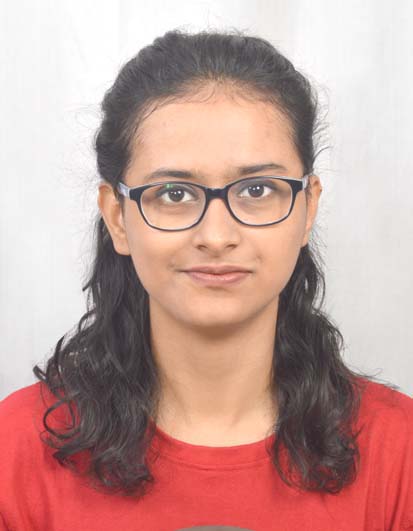
Ankita Sanyal is a doctoral candidate at Centre for West Asian Studies, Jawaharlal Nehru University, New Delhi. She worked as a summer intern at National Human Rights Commission, New Delhi in 2014 and participated in Global Initiative for Academic Networks, lecture on “Jerusalem and Abrahamic Faiths throughout the Ages” (November 2016); ICSSR-sponsored workshop on “Research Methodology Workshop in Social Sciences” (February 2019); and workshop on “Second Intensive Course on Women’s Studies in Islam and Iran” at the University of Religions and Denominations, Qom, Iran (August 2019). She currently has many publications and has presented papers in national and international conferences. She received certificate on completion of Level Two Persian Language course. Her area of interest includes minority studies, gender studies, cultural studies, education, peace and conflict studies.
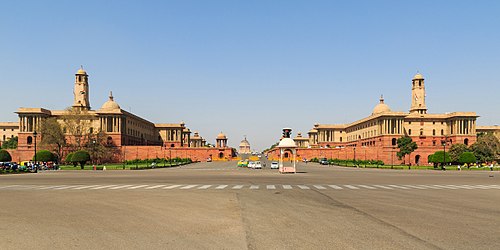
BILATERAL ISSUES BAHRAIN The CEO of LMRA highlights details on the new labour market reforms, .....
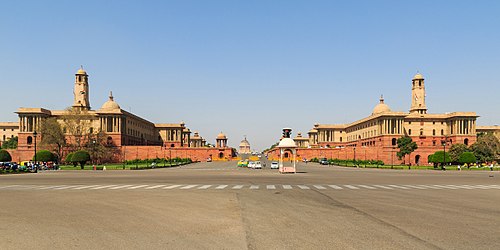
BILATERAL ISSUES EGYPT Raksha Mantri Shri Rajnath Singh to visit Egypt from September 19-20, 2.....
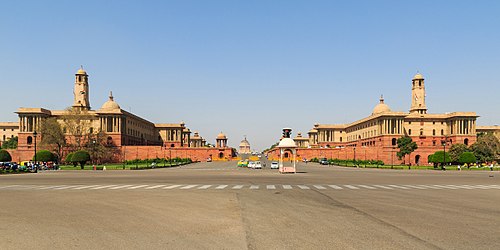
BILATERAL ISSUES IRAN Shri Sarbananda Sonowal visits Chabahar Port in Iran to Review work prog.....
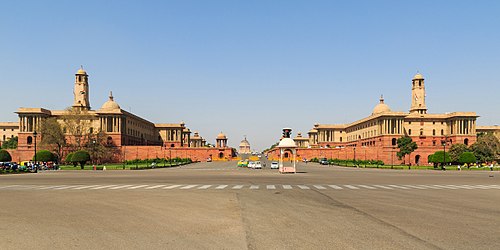
BILATERAL ISSUES BAHRAIN Deputy Chief of Naval Staff, India visits Kingdom of Bahrain, Manama,.....
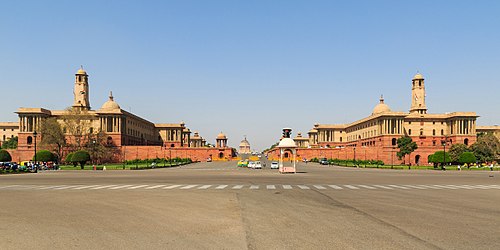
BILATERAL ISSUES BAHRAIN Buyer Seller Meet on Indian coffee between Indian exporters and Bahra.....
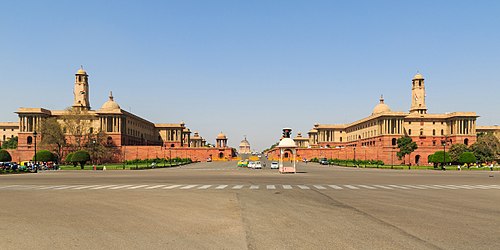
BILATERAL ISSUES BAHRAIN B2B meeting and Networking event between Bahraini & Indian IT com.....
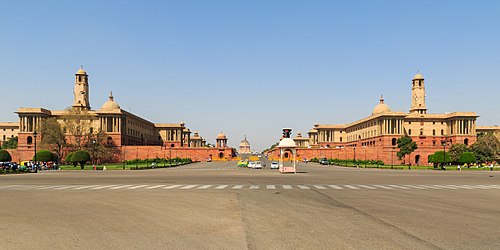
BILATERAL ISSUES OMAN Community Service Fortnight / Sewa Utsav’: ‘Celebration Thro.....
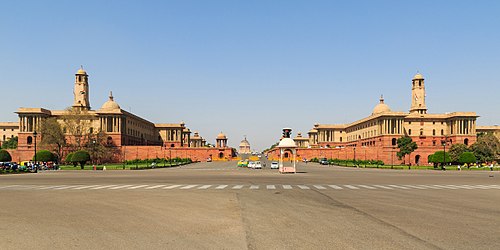
BILATERAL ISSUES BAHRAIN Virtual Buyer Seller Meet on agriculture and food products between In.....
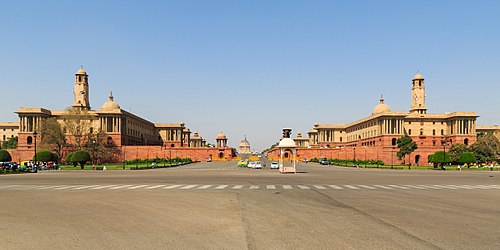
BILATERAL ISSUES BAHRAIN PM speaks on telephone with His Royal Highness Prince Salman bin Hama.....
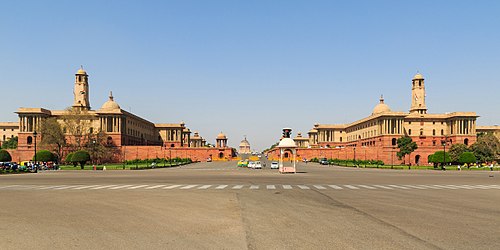
BILATERAL ISSUES ISRAEL Experts from India and Israel suggested expanding scope of India-Israe.....
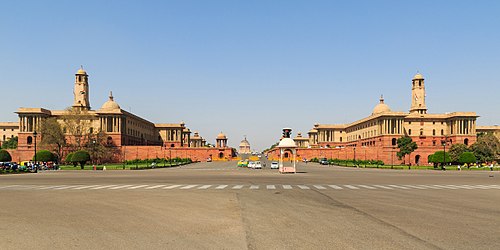
BILATERAL ISSUES BAHRAIN Press Release on virtual meeting between Minister for Education and S.....
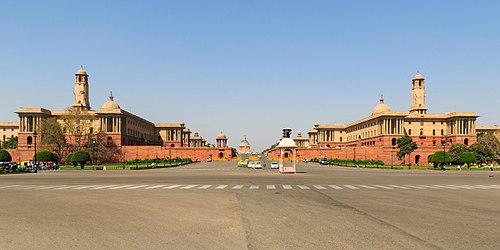
BILATERAL ISSUES BAHRAIN Ambassador’s visit to India Pavilion of Jewellery Arabia, Bahra.....
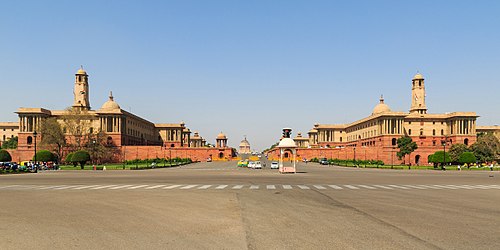
BILATERAL ISSUES BAHRAIN First consignment of GI tagged sweet dish Mihidana from West Bengal e.....
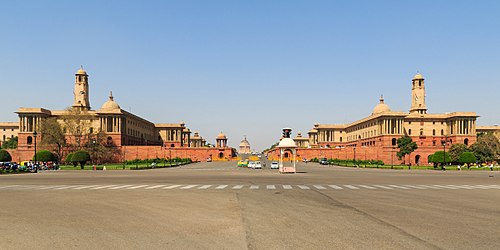
BILATERAL ISSUES ALGERIA Visit of Shri V. Muraleedharan, Minister of State for External Affair.....
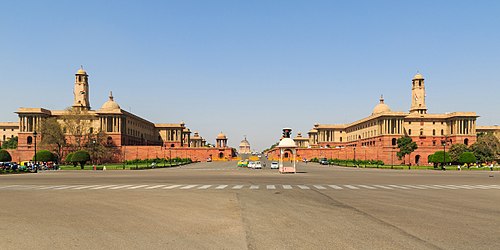
BILATERAL ISSUES ALGERIA INS TABAR undertook a bilateral Passage Exercise (PASSEX) with Algeri.....
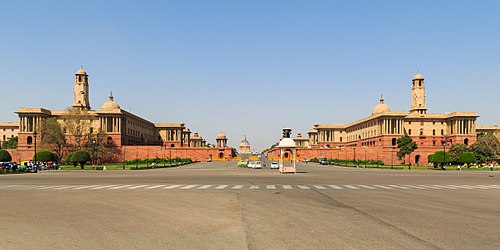
BILATERAL ISSUES BAHRAIN India expands mango export footprint to newer countries; GI certified.....
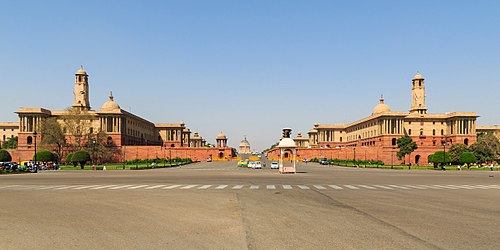
BILATERAL ISSUES ALGERIA APEDA in collaboration with Indian embassy organize virtual buyer sel.....
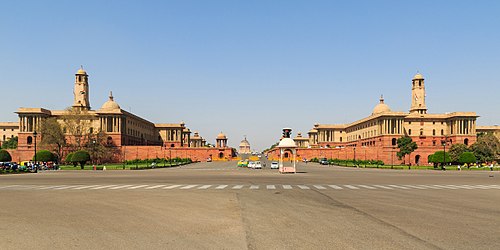
BILATERAL ISSUES EGYPT Procurement of 300,000 doses of Remdesivir from M/s EVA Pharma, Cairo, .....
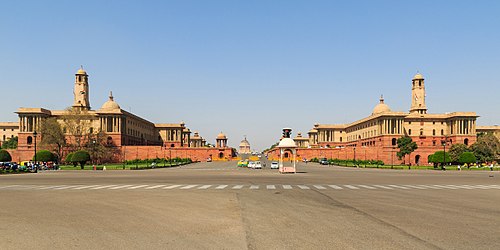
BILATERAL ISSUES BAHRAIN Third India-Bahrain High Joint Commission Meeting, New Delhi, 07 Apri.....
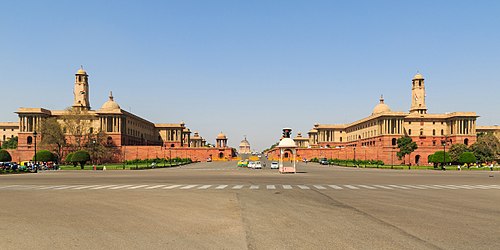
BILATERAL ISSUES BAHRAIN Indian Naval Ship Talwar’s Port Visit to Bahrain, Manama, 18 Ma.....
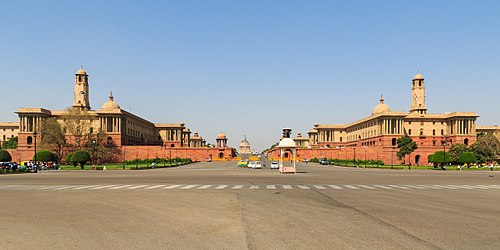
BILATERAL ISSUES IRAN Unstarred Question No.1475, Chabahar-Zaheden Railways Line, Lok Sabha, 1.....
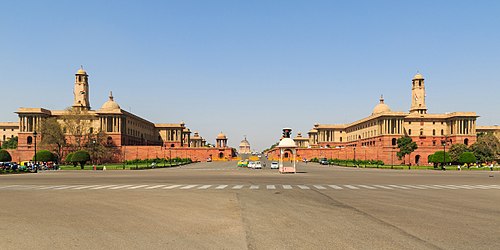
BILATERAL ISSUES IRAN Government of India strengthens cargo handling capacity of Chabahar Port.....
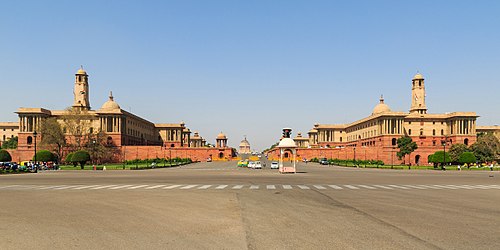
BILATERAL ISSUES BAHRAIN Warm greetings from Indian leadership on the occasion of Bahrain&rsqu.....
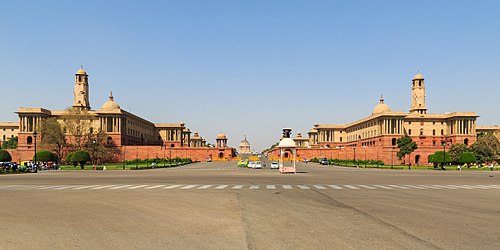
BILATERAL ISSUES BAHRAIN Prime Minister condoles the passing away of His Royal Highness Prince.....
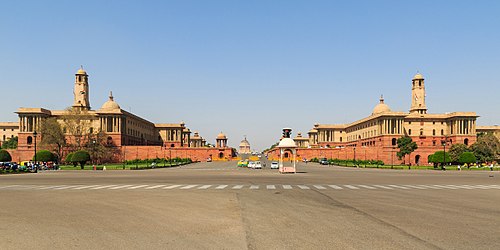
BILATERAL ISSUES BAHRAIN A B2B Webinar on Enhancing Opportunities in Pharmaceuticals and Alter.....
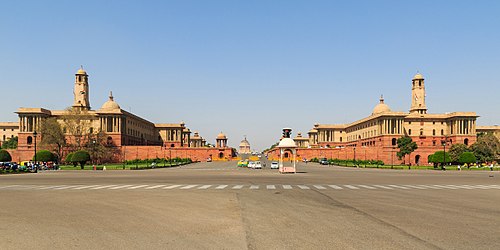
BILATERAL ISSUES ISRAEL Statement by the Official Spokesperson on the full normalisation of re.....
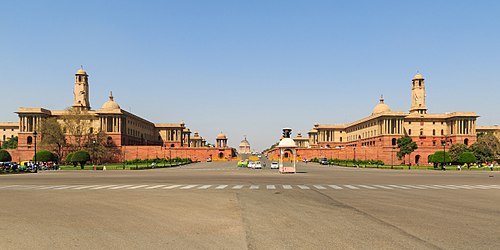
BILATERAL ISSUES ISRAEL Raksha Mantri Shri Rajnath Singh and Israeli Defence Minister telephon.....
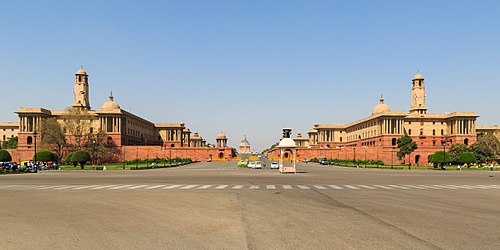
BILATERAL ISSUES IRAN Indian Navy Commences evacuation of citizens from Islamic Republic of Ir.....
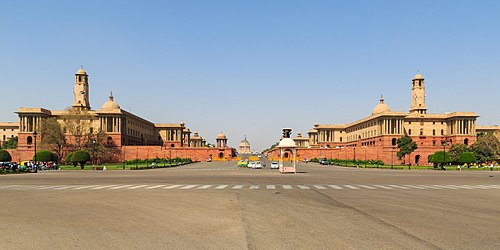
BILATERAL ISSUES EGYPT Phone call between Prime Minister Shri Narendra Modi and His Excellency.....
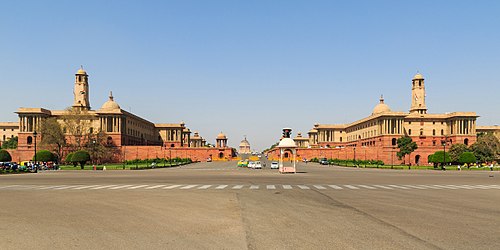
BILATERAL ISSUES BAHRAIN Telephone Conversation between PM and King of the Kingdom of Bahrain,.....
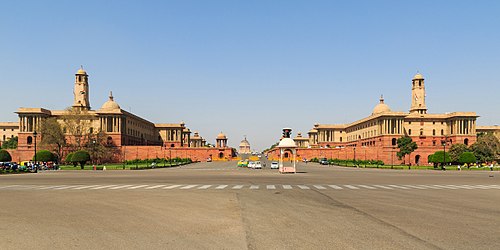
BILATERAL ISSUES IRAN IAF C-17 ‘Globemaster’ takes off for Iran, New Delhi, 9 Marc.....
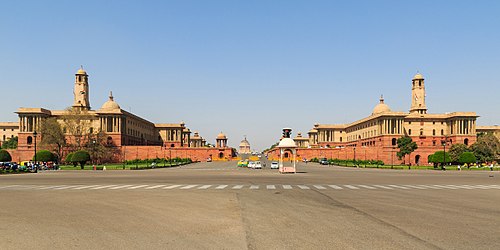
BILATERAL ISSUES IRAQ Travel Advisory for Indian Nationals travelling to Iraq, New Delhi, 19 F.....
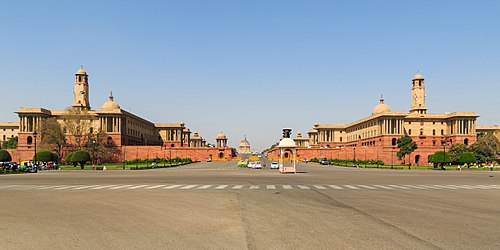
BILATERAL ISSUES EGYPT Photo exhibition on “Making of Indian Constitution and Life of Dr.....
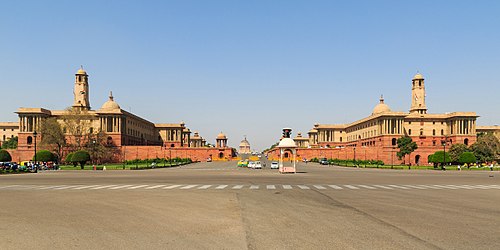
BILATERAL ISSUES EGYPT Prize Distribution Function of “Glimpses of India” Painting.....
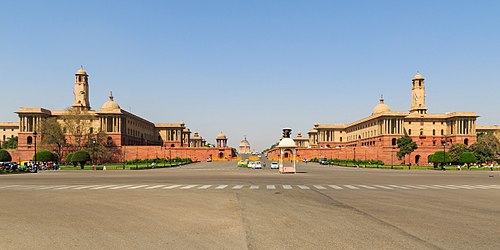
BILATERAL ISSUES EGYPT Consular Camp in Port Said on 22 November 2019, Cairo, 19 November 2019.....
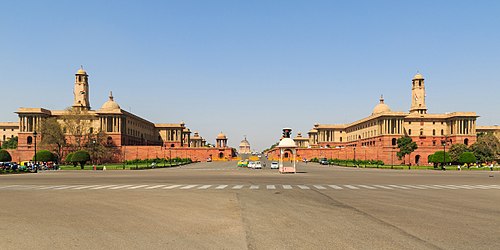
BILATERAL ISSUES JORDAN Meeting between Prime Minister and King of Jordan in Riyadh, Riyadh, 2.....
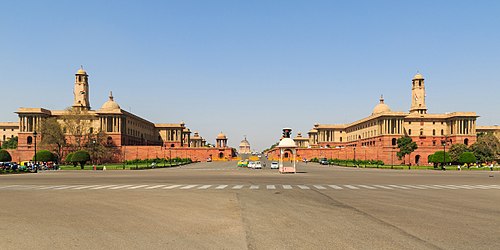
BILATERAL ISSUES a. IRAN Foreign Office Consultations between India and Iran, Tehran, 16 Septe.....
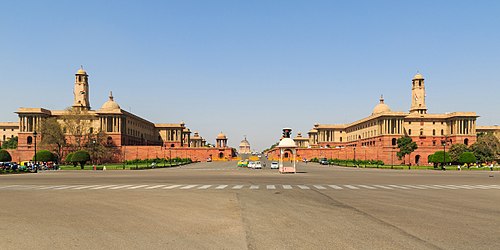
BILATERAL ISSUES a. BAHRAIN State Visits of Prime Minister to Bahrain (August 24-25, 2019), Ne.....
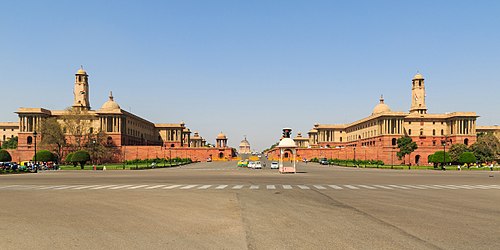
BILATERAL ISSUES BAHRAIN Cabinet approves Memorandum of Understanding between India and B.....
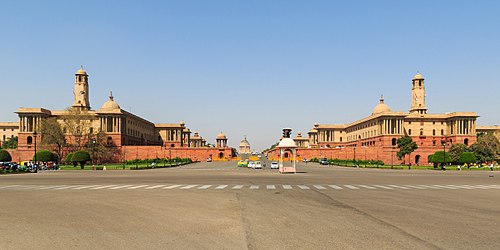
BILATERAL ISSUES IRAN UNSTARRED QUESTION No. 662 MPACT OF AMERICAN BAN ON CHABAHAR PORT, Rajya.....
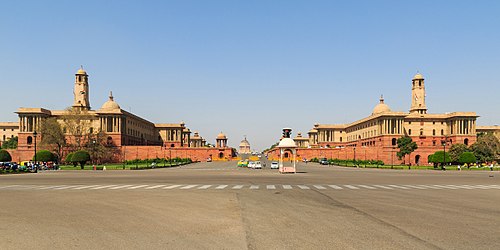
BILATERAL ISSUES IRAN 11th India Iran Joint Consular Committee Meeting (JCCM), New Delhi, 16 M.....
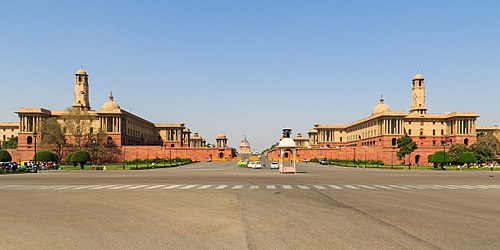
IRAN India extends relief assistance to Iran after recent floods, Tehran, 17 April 2019 In lin.....
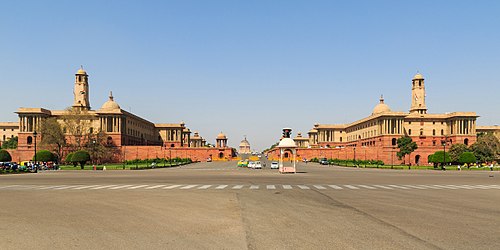
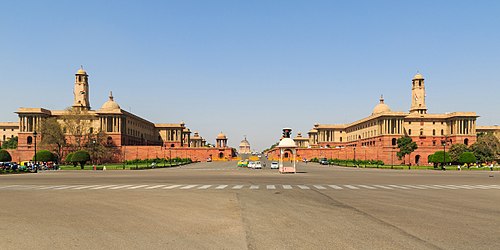
BILATERAL ISSUES EGYPT India condemns terrorist attacks in Egypt, New Delhi, 22 February 2019 .....
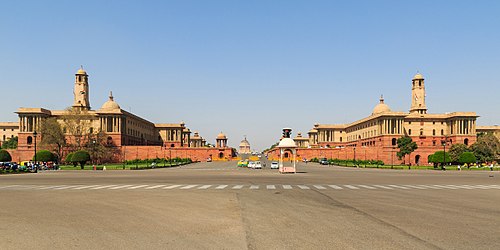
BILATERAL ISSUES ALGERIA Visit of Foreign Minister of Algeria to India (January 30-February 01.....
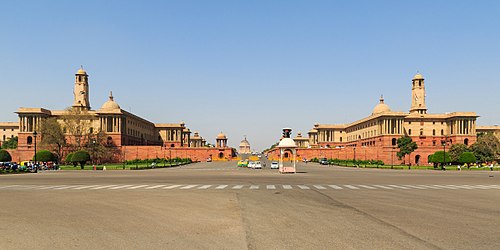
ALGERIA Cabinet approves Agreement between India and Algeria on Cooperation in the field of Space.....
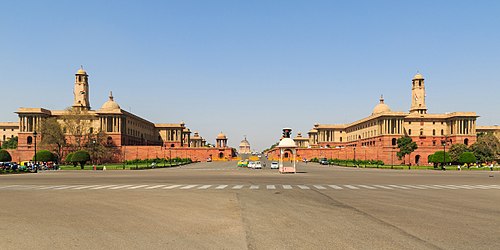
BILATERAL ISSUES IRAQ Jaipur Foot Camp in Karbala, Karbala, 21 November 2018 A 40-day Artif.....
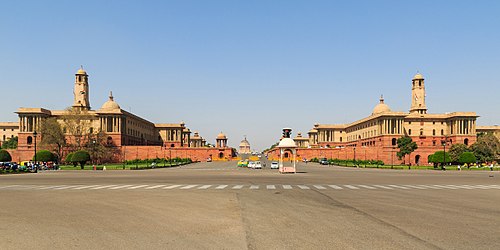
BILATERAL ISSUES KUWAIT Visit of External Affairs Minister to State of Qatar and State of Kuwa.....
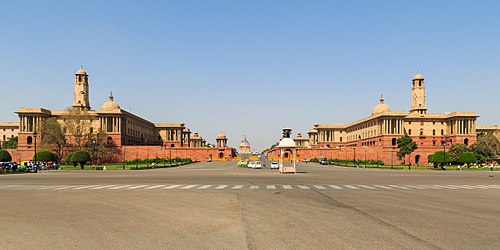
BILATERAL ISSUES EGYPT Cabinet approves MoU between India and Egypt on cooperation in the fiel.....
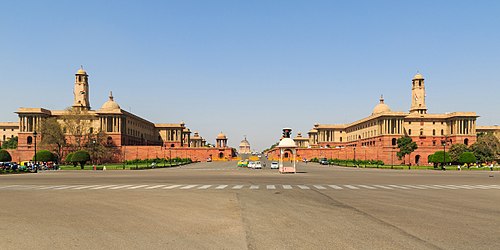
BILATERAL ISSUES BAHRAIN Question No. 3566, Unpaid Workers in Bahrain, Lok Sabha, New Delhi, 0.....
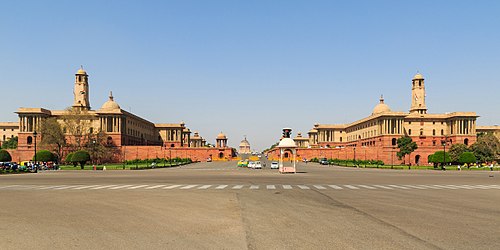
BILATERAL ISSUES BAHRAIN Visit of External Affairs Minister to Manama, Bahrain (July 14-15, 20.....
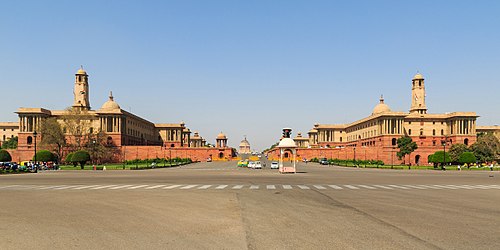
BILATERAL ISSUES BAHRAIN Cabinet approves MoU between India and Bahrain on cooperation in the .....
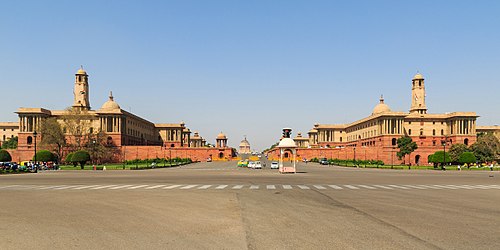
BILATERAL ISSUES IRAN External Affairs Minister’s meeting with Iranian Foreign Minister,.....
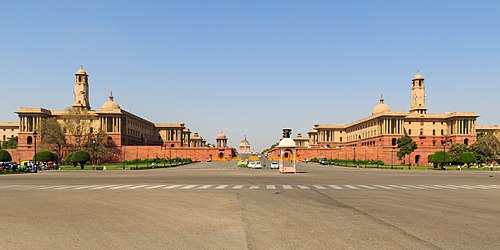
BILATERAL ISSUES IRAN Cabinet approves MoU between India and Iran on the establishment of an e.....
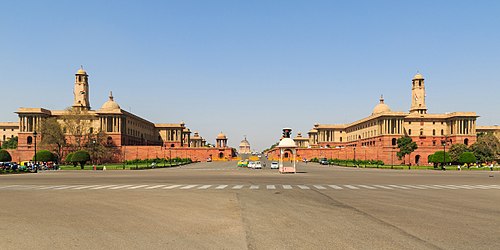
(Monthly Digest of Official Indian Statements on Middle East) BILATERAL ISSUES EGYPT Mr. Sa.....
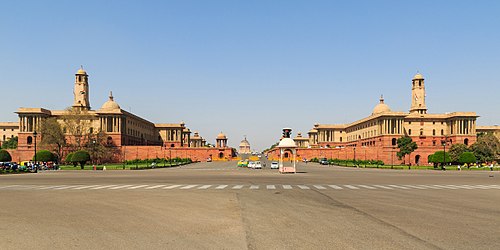
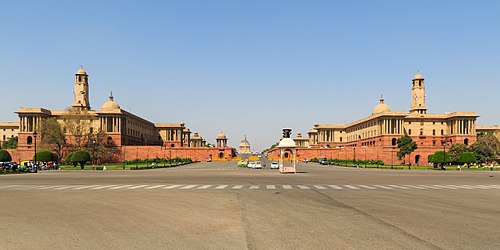
(Monthly Digest of Official Indian Statements on Middle East) BILATERAL ISSUES IRAN Launch .....
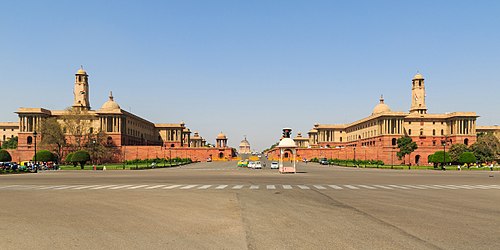
(Monthly Digest of Official Indian Statements on Middle East) BILATERAL ISSUES &.....
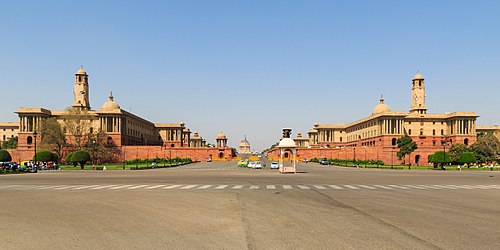
BILATERAL ISSUES a. EGYPT 1. H.E. Col. Rajyavardhan Singh Rathore, Minister of State for Youth.....
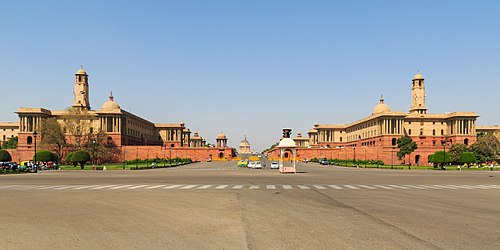
BILATERAL ISSUES a. IRAQ 1. India’s position on the Referendum held in the Kurdistan Reg.....
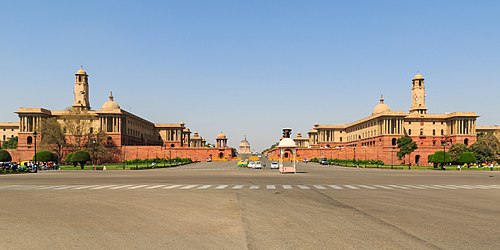
BILATERAL ISSUES IRAN 1. 6th Meeting of Joint Committee on Ports and Maritime Cooperation.....
